+91-9987013449

Nickel sheets and plates are essential materials in various industries due to their exceptional properties, including high corrosion resistance, excellent mechanical strength, and superior thermal and electrical conductivity. This guide provides detailed information on nickel sheets and plates, covering their properties, types, applications, and benefits.
High Strength: Nickel sheets and plates maintain high mechanical strength and structural integrity under stress.
Nickel's superior thermal conductivity makes it ideal for applications requiring efficient heat transfer.
| Property | Description |
|---|---|
| Material | Nickel |
| Grades Available | Nickel 200 (UNS N02200), Nickel 201 (UNS N02201) |
| Standard | ASTM B162 |
| Dimensions | Thickness: 0.1 mm to 50 mm (custom sizes available) |
| Width & Length | Up to 2000 mm width and up to 6000 mm length |
| Surface Finish | Cold rolled, annealed, descaled, pickled |
| Temper | Annealed, 1/4 hard, 1/2 hard, full hard |
| Tolerance | According to ASTM B162 specifications |
| Chemical Composition | Ni: 99.0% min (Nickel 200), Ni: 99.0% min (Nickel 201) |
| Density | 8.9 g/cm³ |
| Melting Point | 1455°C (2651°F) |
| Electrical Conductivity | 23.5 μΩ·cm (20°C) |
| Thermal Conductivity | 0.907 W/cm·K (20°C) |
| Magnetic Properties | Non-magnetic |
| Applications | Chemical processing, marine engineering, electronics, aerospace |
| Special Features | High thermal and electrical conductivity, excellent resistance to corrosion in alkaline media |
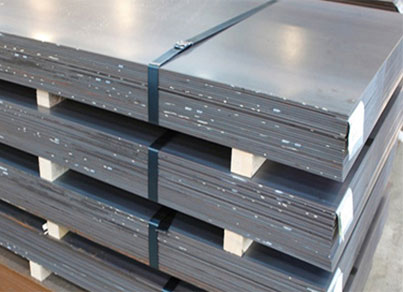
Inconel sheets and plates offer outstanding resistance to corrosion in a wide range of environments,
including oxidizing and reducing conditions, alkaline solutions, and high-temperature atmospheres.
This corrosion resistance makes them suitable for applications exposed to aggressive chemicals,
acids, and seawater.
Inconel alloys retain their mechanical strength and structural integrity at elevated temperatures,
making them ideal for use in high-temperature applications such as gas turbine components, heat
exchangers, and furnace parts.
| Property | Description |
|---|---|
| Material | Inconel (Nickel-Chromium Alloy) |
| Grades | Inconel 600, Inconel 625, Inconel 718, Inconel 825, etc. |
| Standard | ASTM B168 (Sheet), ASTM B424 (Plate) |
| Size Range | Sheet Thickness: 0.1 mm - 6.35 mm (0.004" - 0.25") |
| Plate Thickness: 6.35 mm - 100 mm (0.25" - 4.0") | |
| Width/Length | Custom or standard sizes |
| Surface Finish | Cold Rolled, Hot Rolled, Annealed, Pickled |
| Tolerance | ASTM B168, ASTM B424 |
| Heat Treatment | Solution Annealing, Annealing + Aging (for some grades) |
| Mechanical Properties | Varies by grade and heat treatment |
| Corrosion Resistance | Excellent resistance to corrosion and oxidation |
| Weldability | Good weldability with suitable welding procedures |
| Certification | ASTM compliance, EN 10204 3.1, EN 10204 3.2 |
| Applications | Aerospace, Chemical Processing, Marine Engineering, |
| Power Generation, Oil and Gas Industry, etc. |
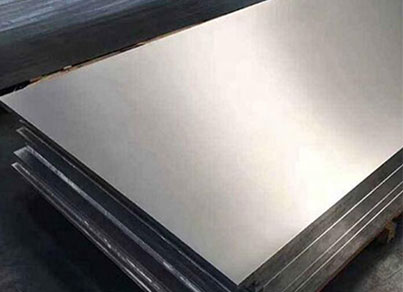
Hastelloy sheets and plates exhibit exceptional resistance to corrosion in aggressive environments,
including sulfuric acid, hydrochloric acid, seawater, and acidic solutions containing chlorides.
This corrosion resistance makes them suitable for applications exposed to harsh chemicals and
corrosive atmospheres.
Hastelloy C276: The most widely used Hastelloy alloy, known for its versatility and superior corrosion
resistance.
Hastelloy C22: Offering enhanced resistance to pitting, crevice corrosion, and oxidizing environments.
Hastelloy B2: Exceptional resistance to hydrochloric acid at all concentrations and temperatures.
| Property | Hastelloy C276 | Hastelloy C22 | Hastelloy B2 |
|---|---|---|---|
| Composition | Ni 57%, Mo 16%, Cr 16%, W 4% | Ni 56%, Cr 22.5%, Mo 13%, Fe 3% | Ni 68%, Mo 28%, Fe 2%, Cr 1% |
| Density (g/cm³) | 8.89 | 8.69 | 9.24 |
| Melting Point (°C) | 1325-1370 | 1321-1355 | 1330-1380 |
| Tensile Strength (MPa) | 690-783 | 690-750 | 690-760 |
| Yield Strength (0.2% offset) (MPa) | 283-517 | 276-483 | 276-483 |
| Elongation (%) | 40 (min) | 45 (min) | 40 (min) |
| Hardness (Brinell) | 217 (max) | 215 (max) | 217 (max) |
| Corrosion Resistance | Excellent in oxidizing and reducing environments, resistant to pitting, crevice corrosion, and stress corrosion cracking | Outstanding resistance to pitting, crevice corrosion, and oxidizing environments, excellent resistance to chlorides and reducing acids | Exceptional resistance to hydrochloric acid at all concentrations and temperatures, resistant to sulfuric, acetic, and phosphoric acids |
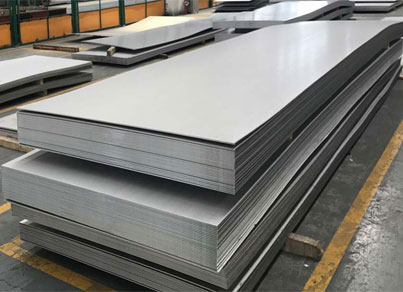
Super duplex stainless steel is characterized by its dual-phase microstructure, consisting of
approximately equal parts of austenite and ferrite phases.
Super duplex sheets and plates exhibit exceptional corrosion resistance in chloride-rich environments,
such as seawater and chemical processing applications.
Super duplex stainless steel sheets and plates boast outstanding mechanical properties, including high
tensile and yield strength, as well as excellent impact toughness.
Super duplex sheets and plates can be readily fabricated using conventional methods such as cutting,
bending, and welding.
| Property | Super Duplex Stainless Steel |
|---|---|
| Composition | 25% Chromium, 7% Nickel, 4% Molybdenum, 0.25% Nitrogen, 0.5% Copper |
| Density (g/cm³) | 7.8 |
| Melting Point (°C) | 1350-1390 |
| Tensile Strength (MPa) | 620 - 800 |
| Yield Strength (0.2% offset) (MPa) | ≥ 450 |
| Elongation (%) | ≥ 25 |
| Hardness (Brinell) | 270-320 |
| Corrosion Resistance | - Excellent resistance to chloride stress corrosion cracking, pitting, and crevice corrosion in aggressive environments |
| Heat Resistance | - Maintains mechanical properties at elevated temperatures up to 250°C (482°F) |
| Weldability | - Good weldability with standard welding techniques such as GTAW (Gas Tungsten Arc Welding) and SMAW (Shielded Metal Arc Welding) |
| Fabrication | - Can be readily fabricated using conventional methods such as cutting, bending, and forming |
| Machinability | - Moderate machinability, requires appropriate tooling and cutting parameters |
| Applications | - Offshore platforms, subsea pipelines, and equipment in oil and gas industry - Chemical and petrochemical processing equipment - Marine engineering structures - Renewable energy applications such as wind turbines and tidal energy systems |
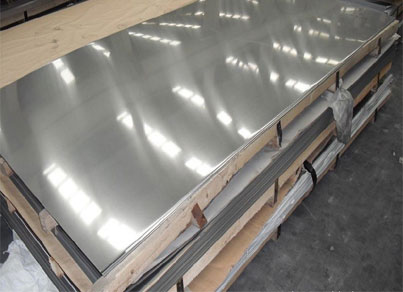
Stainless steel plate are hot rolled and is very versatile and used in a variety of applications. It is primarily selected for its corrosion resistance, high tensile strength, temperature resistant, long lasting, easy formability & attractive appearance. Typical uses of stainless steel plate include for construction, food industry, breweries, infrastructure, vessels & tanks manufacturing, process industry, dairy, pharmaceutical, fabrication, etc. Stainless steel sheets, also commonly known as Cold Rolled Products, can be moulded into shapes for making tanks, vessels, fabrication, home décor, cookware etc.
| Standard | ASTM A240 |
| Grades | 304, 304L, 304H, 310, 310S, 316, 316L, 316Ti, 316LN, 317, 317L, 321, 347, 904L, SMO254. |
| Thickness | 0.5mm to 50mm |
| Sizes | 1250 x 2500, 1250 x 6000, 1500 x 3000, 1500 x 6000 & Custom cut sizes |
| Type | Coils, Sheets, Plates |
| Form | Cold Rolled, Hot Rolled |
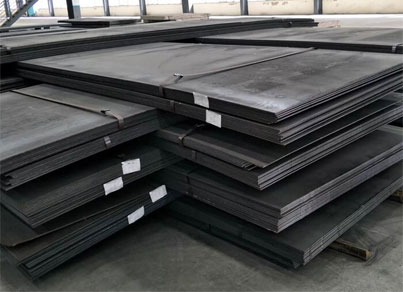
Carbon steel sheets and plates are essential materials in various industries due to their strength,
versatility, and affordability.
Low Carbon Steel: Contains up to 0.3% carbon, offering good weldability and formability.
Medium Carbon Steel: Contains 0.3% to 0.6% carbon, balancing strength and ductility.
High Carbon Steel: Contains more than 0.6% carbon, providing exceptional hardness and
strength but less ductility.
Sheets: Thin, flat pieces usually less than 6mm thick, used in automotive panels, construction,
and general fabrication.
Plates: Thicker than sheets, commonly over 6mm, employed in structural applications, machinery,
and heavy equipment manufacturing.
| Property | Specification |
|---|---|
| Material | Carbon Steel |
| Carbon Content | Varies (Low, Medium, High) |
| Thickness (Sheets) | Typically < 6mm (varies per application) |
| Thickness (Plates) | Typically > 6mm (varies per application) |
| Tensile Strength | Varies based on grade and thickness |
| Yield Strength | Varies based on grade and thickness |
| Hardness | Varies based on grade and heat treatment |
| Ductility | Varies based on carbon content |
| Weldability | Varies based on carbon content |
| Corrosion Resistance | Generally low, requires protective coatings |
| Surface Finish | Mill finish, cold rolled, hot rolled, others |
| Standard Specifications | ASTM, AISI, DIN, JIS, others as per need |
| Applications | Construction, automotive, manufacturing, shipbuilding, etc. |
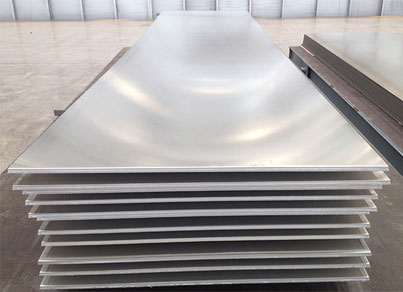
Aluminum sheets and plates are primarily composed of aluminum, with small amounts of other elements
such as copper, magnesium, silicon, and zinc added for strength and other properties.
Pure Aluminum (1000 series): High corrosion resistance, excellent weldability, and formability.
Low strength.
Aluminum-Manganese Alloys (3000 series): Good formability, moderate strength, and corrosion
resistance.
Aluminum-Silicon Alloys (4000 series): Good flowability and weldability, used for welding or
brazing.
Aluminum-Magnesium Alloys (5000 series): Excellent corrosion resistance, high strength, suitable
for marine applications.
Aluminum-Zinc Alloys (7000 series): High strength and toughness, often used in aerospace applications.
| Property | Specification |
|---|---|
| Material | Aluminum |
| Alloy | Various (e.g., 1000 series, 3000 series, etc.) |
| Thickness (Sheets) | Typically 0.2mm to 6mm (varies per application) |
| Thickness (Plates) | Typically > 6mm (varies per application) |
| Tensile Strength | Varies based on alloy and temper |
| Yield Strength | Varies based on alloy and temper |
| Hardness | Varies based on alloy and temper |
| Ductility | Generally high |
| Formability | Excellent |
| Weldability | Good |
| Corrosion Resistance | Excellent |
| Conductivity | High (thermal and electrical) |
| Surface Finish | Mill finish, brushed, anodized, etc. |
| Standard Specifications | ASTM B209, AMS-QQ-A, EN 485, etc. |
| Applications | Transportation, construction, packaging, electronics, machinery, etc. |
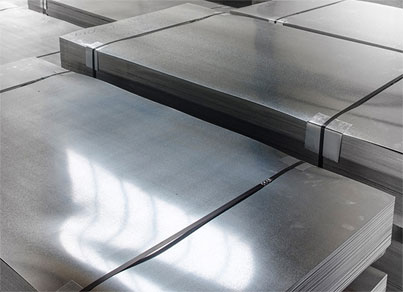
Titanium sheets and plates are primarily composed of titanium, with small amounts of other
elements like aluminum, vanadium, or iron added to improve mechanical properties.
Commercially Pure Titanium (CP): Contains a low percentage of other elements, typically 99%
pure titanium. Grades 1 to 4 are common.
Titanium Alloys: Incorporate alloying elements such as aluminum, vanadium, or iron to enhance
specific properties like strength or corrosion resistance. Grades 5 (Ti-6Al-4V) and 23
(Ti-6Al-4V ELI) are popular titanium alloys.
| Property | Specification |
|---|---|
| Material | Titanium |
| Alloy | Commercially Pure Titanium (CP) or Titanium Alloys |
| Grade | Varies (e.g., Grade 1, Grade 2, Grade 5, Grade 23) |
| Thickness (Sheets) | Typically 0.5mm to 6mm (varies per application) |
| Thickness (Plates) | Typically > 6mm (varies per application) |
| Tensile Strength | Varies based on grade and temper |
| Yield Strength | Varies based on grade and temper |
| Hardness | Varies based on grade and heat treatment |
| Corrosion Resistance | Excellent |
| Biocompatibility | Excellent |
| Density | Varies based on grade (~4.5 to 4.51 g/cm^3) |
| Thermal Conductivity | Low (~6 to 20 W/m·K) |
| Applications | Aerospace, medical, chemical processing, marine, industrial, etc. |
| Standard Specifications | ASTM B265, ASTM F136, ASTM F67, AMS 4911, etc. |
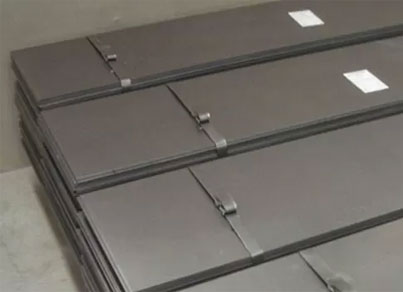
Nimonic alloys primarily consist of nickel along with varying amounts of chromium, cobalt,
titanium, aluminum, and other elements.
Different grades of Nimonic alloys are available, including Nimonic 75, Nimonic 80A, Nimonic 90,
Nimonic 105, and others, each offering specific properties for different applications.
Sheets: Thin, flat pieces with thicknesses typically ranging from 0.5mm to 6mm.
Plates: Thicker than sheets, usually over 6mm.
| Property | Specification |
|---|---|
| Material | Nimonic (Nickel-based superalloy) |
| Composition | Primarily nickel, with chromium, cobalt, titanium, aluminum, and other elements |
| Grades | Nimonic 75, Nimonic 80A, Nimonic 90, Nimonic 105, etc. |
| Thickness (Sheets) | Typically 0.5mm to 6mm (varies per application) |
| Thickness (Plates) | Typically > 6mm (varies per application) |
| Tensile Strength | Varies based on grade and heat treatment |
| Yield Strength | Varies based on grade and heat treatment |
| Hardness | Varies based on grade and heat treatment |
| Temperature Resistance | Excellent high-temperature strength and oxidation resistance |
| Corrosion Resistance | Excellent corrosion resistance at high temperatures |
| Creep Resistance | Excellent resistance to deformation under high stresses and temperatures |
| Formability | Good ductility and formability for fabrication |
| Weldability | Generally weldable with proper procedures |
| Applications | Aerospace, power generation, chemical processing, automotive, etc. |
| Standard Specifications | AMS, ASTM, BS, DIN, ISO, etc. |
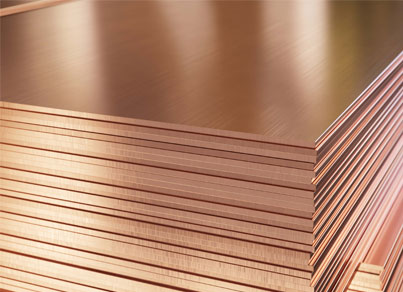
Copper plates has an excellent electric conductivity, high thermal conductivity, and good resistance to corrosion. It is used in variety of industry across the world marine, electrical parts, steam condensers, heat exchangers, boilers, tanks, cooling industry, chillers, military, architectural use & home décor.
| Grades | Oxygen free High Conductivity Copper, Electrolytic Tough Pitch , Phosphorous Deoxide Copper |
| Cold Rolled | 0.5mm – 25mm |
| Hot Rolled | 30mm – 100mm |
| Sizes | 1000 x 1000, 1000 x 2000, 1250 x 1250 x 1250 x 2500 |
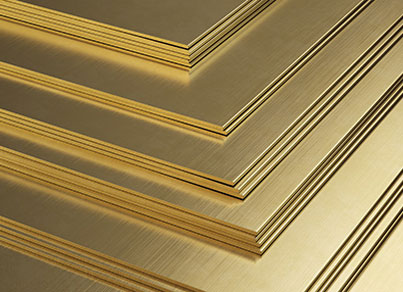
The composition of brass, generally 66% copper and 34% zinc, makes it a favourable substitute for copper as it exhibits greater resistance to corrosion and is more affordable. Brass is not as hard as bronze, and so is not suitable for most weapons and tools. Applications for brass plate includes construction equipment’s, ammunition, door locks, brackets, door plates, domestic interior fittings, electrical and plumbing components and architectural fascia's.
| Cold Rolled | 1.2mm – 16mm |
| Hot Rolled | 30mm – 75mm |
| Sizes | 1000 x 1000, 1250 x 1250 etc. |